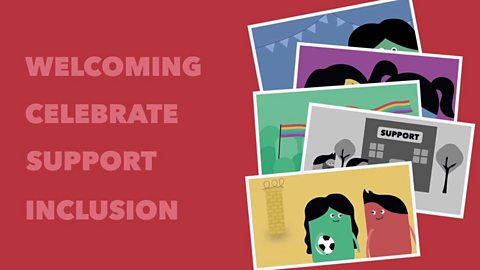Human rights
Equality is when each person is seen as equal in the eyes of the law.
A government that protects human rights makes one set of laws for everyone, not different laws for different people.
In the past, the law has discriminated against some groups based on their race, religion, gender, or sexuality.
Social justice is when each person can exercise their rights within a society.
A government that promotes social justice ensures that everyone has physical security, education, healthcare, and employment.
Discrimination
ÔÇśDiscriminationÔÇÖ is choosing to favour one thing over another.
We discriminate all the time.
We choose clothes of a certain colour over others, certain foods over others.
We sometimes call people ÔÇśdiscriminatingÔÇÖ to show that they have good taste.
The problem is when we discriminate against people.
Too often, people are discriminated against because of who they are.
They may suffer from unemployment, lower wages, abuse, or violence because of their gender, race, religion, or sexuality.
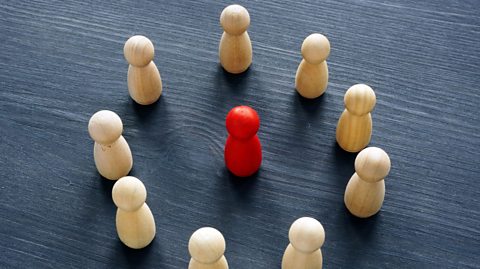
What causes discrimination?
Most of us feel comfortable around people who are similar to us.
We have a natural inclination to treat people like ourselves well.
We fear the unknown and may feel challenged by people who do not share our outlook on the world.
In a fair and equal society, everyone learns about others and respects their views.
We are less likely to fear people when we make an honest effort to understand how they see the world.

What are the consequences of discrimination?
Victims of discrimination do not enjoy equality and social justice.
They are less likely to receive fair treatment in the courts, and have less security, education, and healthcare than others.
They are more likely to be:
- Verbally and physically attacked
- Depressed
- Lonely
- Fearful and hateful of society
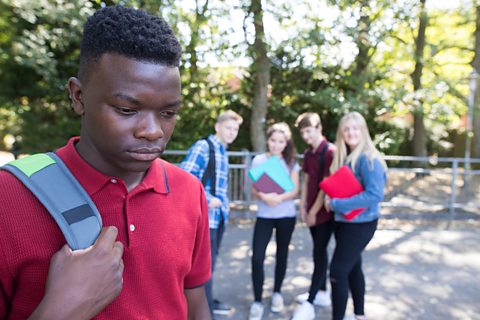
Victims of discrimination
Everyone may suffer from discrimination from time to time, but some groups are affected more than others.
Gender
Women and men are often treated very differently. Women suffer the most from gender discrimination.
Women
- are often paid less than men;
- enjoy fewer promotions at work;
- have their careers negatively affected by having children;
- suffer sexual harassment;
- may work in environments that exclude women from their social activities;
- are more likely to suffer violence at home.
Race
People with different skin colours, languages, and different ethnic backgrounds from the majority often suffer from discrimination.
Racial minorities:
- might not be offered the same employment opportunities as others;
- may be paid less than others;
- may suffer harassment in public;
- can be the target of violent attacks.
Refugees
Refugees are usually from a different ethnic background from the majority and have suffered in the country that they come from.
Refugees:
- might struggle to find accommodation;
- might not find a job that treats them well and pays them fairly;
- might not be able to speak the language;
- might struggle to adjust to different weather, culture and traditions;
- must still have to support a family in their home country;
- might not be able to educate their children;
- might suffer from racist discrimination.
Sexuality
Lesbian, gay, bisexual, transsexual, and transgender (LGBT) people often face discrimination from the heterosexual majority.
LGBT people:
- often suffer harassment, abuse and violence;
- might struggle to find housing;
- might not find a job that treats them well and pays them fairly;
- might be excluded from social services.

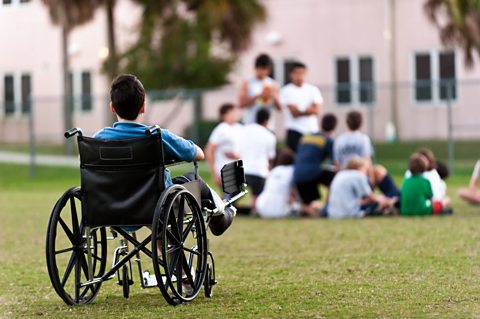
People with disabilities
People with mental and physical disabilities often face discrimination from the able-bodied majority.
There are many simple adjustments that can be made to accommodate disabled people. They are discriminated against when these adjustments are not made.
Disabled people:
- might have limited education and employment prospects;
- face physical barriers to their movement (buildings without wheel chair ramps, for example);
- face exclusion from social events.

What can be done?
Some governments use ÔÇśanti-discrimination lawsÔÇÖ in an attempt to right the wrongs that these groups suffer.
This legislation often gives special privileges to compensate for a perceived disadvantage.
The government can offer employment programmes, housing benefits, and education opportunities to these groups to create social equality.
There are a range of laws that help to promote equality and social justice in Northern Ireland.
- The Good Friday Agreement
- The Northern Ireland Act 1998 (section 75)
- Equal Pay Act (Northern Ireland) 1970 (amended 1984)
- Sex Discrimination (Northern Ireland) Order 1976 (amended 1988)
- Race Relations (Northern Ireland) Order 1997
- Fair Employment and Treatment (Northern Ireland) Order 1998
- Disability Discrimination Act 1995
There is also a government organisation, the Northern Ireland Equality Commission, which monitors how well these laws are implemented.
The role of civil society
Civil society is the name given to all the groups in society who represent citizensÔÇÖ interests. It is distinct from government and business. Non-government organisations (NGOs) are prominent parts of civil society.
NGOs are often charities and pressure groups.
Your role in promoting social equality and safeguarding human rights
Young people who demonstrate social responsibility in the community set an example to their peers and others. You can support social equality and human rights by:
- volunteering to work in local youth clubs and helping others with community projects;
- fundraising, organising or participating in campaigns to address a community issue;
- develop an understanding of how your behaviour can affect others.
Information and Support: Bitesize
If you, or someone you know, have been affected by issues for young people, the following organisations may be able to help:
More on Local and global citizenship
Find out more by working through a topic
- count5 of 5
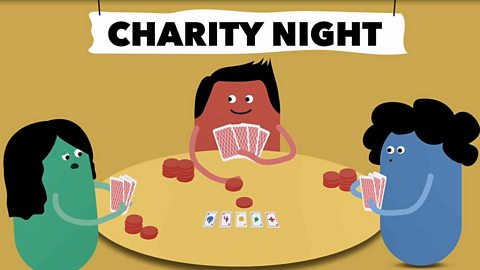
- count1 of 5
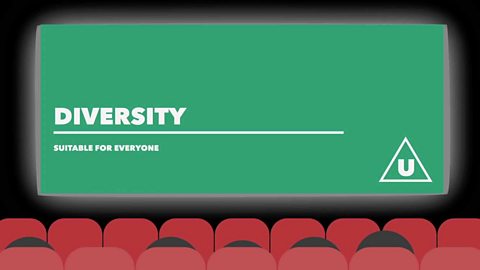
- count2 of 5
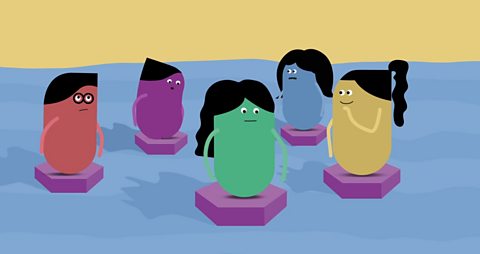
- count3 of 5
